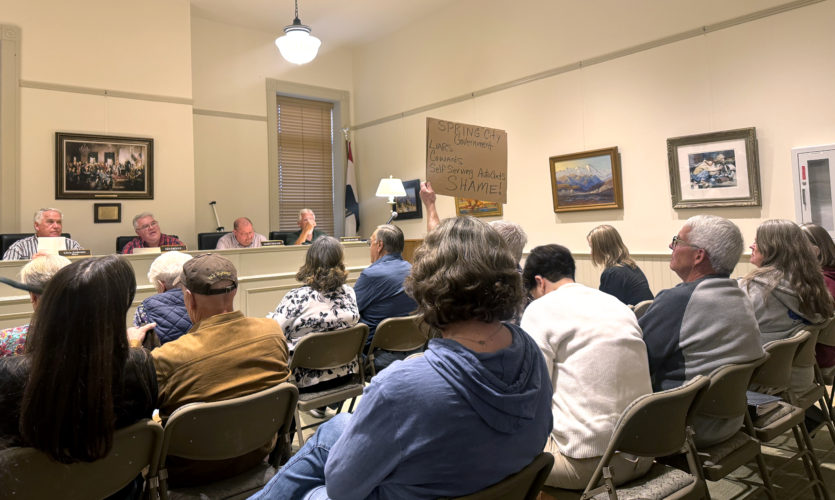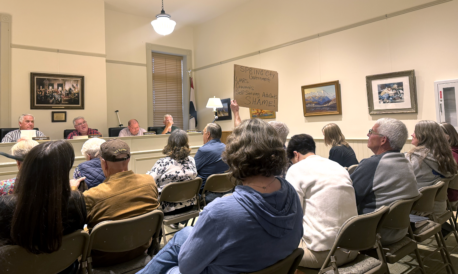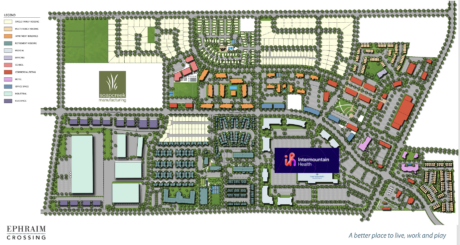Spring City Council approves high-density rezoning, sparking resident backlash

Marcia Harris, The Pyramid
In a heated Spring City Council Meeting, local resident Jahn Miller, angrily protests the city council voting on approving a controversial rezoning ordinance.SPRING CITY — Just two weeks before a general election that will determine the mayor’s chair and three council seats, the Spring City Council has approved a controversial ordinance allowing higher-density housing across the historic Utah town.
In a special meeting lasting less than 30 minutes, the council voted unanimously to adopt Ordinance 2025-05, which permits 1,000-square-foot accessory units — including potential basements and second stories — on most residential lots. The decision drew immediate criticism from residents who say the move disregards public input and threatens the community’s historic character.
The ordinance was supported by all five council members, including Councilman and mayoral candidate Paul Penrod, who had previously opposed high-density development. Before casting his vote, Penrod said he hoped to restore “peace and tranquility” to the community.
His reversal frustrated many residents, including members of Friends of Historic Spring City, who have been engaged in lawsuits challenging the city’s recent planning decisions.
“I feel betrayed,” said local resident Bruce Spiegle. “This decision will increase congestion and change the look and feel of Spring City forever. These choices should come through a professional Comprehensive General Plan — something the city keeps avoiding. We could even lose our status on the National Historic Register.”
Mayor Chris Anderson defended the council’s actions, saying the city has adopted a General Plan to guide development. However, he noted that he “has no vote” in council matters. Anderson, who has served as both mayor and councilman over the past eight years, is seeking another term on the council.
Anderson said the timing of the special meeting may have been influenced by the upcoming election. “Council members wanted to move forward with a decision rather than face further delays,” he said. “A new City Council could revisit the ordinance.”
Opponents of the measure also voiced concerns over water availability, citing the region’s worsening drought. Opening the door to developers could spell trouble for a farm town that depends on five springs to provide its culinary water supply. Just three years ago, Horseshoe Irrigation President Randy Strate warned city leaders that “drought has decimated the flow rate of springs in town and the wells are having to be used sporadically to supplement the amount of water available.”
Since 2022, Sanpete County’s drought has only worsened. Residents worry about how the town will provide services for large-scale development when Spring City is already a small, financially strained community that consistently faces water shortages.
“If there’s no snowpack, there’s no water,” said James Baker, a local banker and candidate for City Council. “Spring City hasn’t had enough snow in 20 years. It’s hard to understand why our leaders aren’t protecting our water first.”
The new ordinance also redefines the town’s historic boundaries, creating “protected” and “unprotected” zones. Homeowners in the unprotected areas fear nearby multi-family housing could alter the city’s traditional open-space layout.
“I am so angry,” said homeowner Kathy Caldwell, who restored a historic property in the area. “We came here to preserve what makes this town special, but our leaders aren’t listening to two years of public protests.”
Residents have filed a referendum seeking to overturn the ordinance and ensure citizens have a voice in future planning decisions. The matter may ultimately be decided in court.



